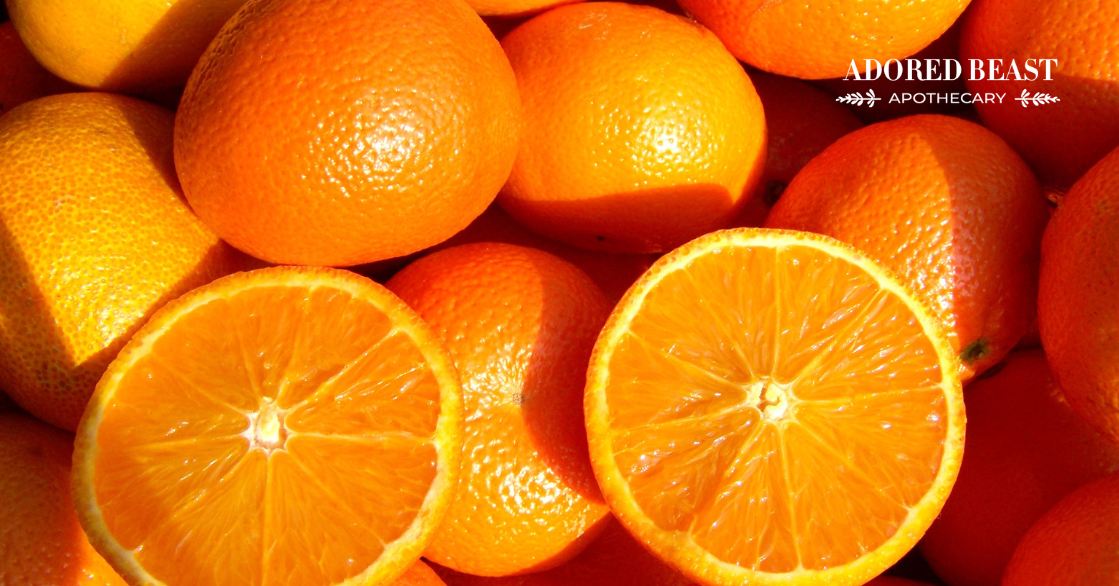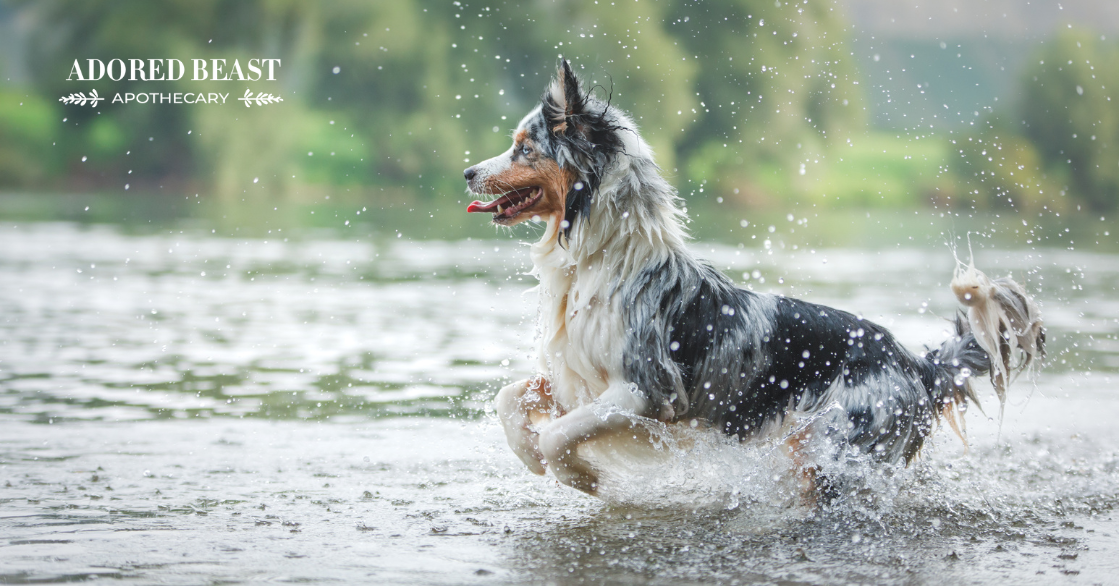Oranges are one of the most popular fruits in North America. They’re not exotic or fancy, and you can get them anywhere – but when they’re good, they sure do hit the spot!
We always keep oranges in the fridge at our house. They’re good morning, noon, and night.
And if you do too, maybe you’re wondering, can dogs eat oranges? If they stare at you while you peel them apart and indulge, is it safe to share a bite or two? Let’s talk about it!
Can Dogs Eat Oranges? Peeling Back the Benefits
Can dogs eat oranges? Yes, in moderation oranges are a great treat to share with your adored beast!
They’re packed full of vitamins and minerals like fibre, folate, calcium, potassium, vitamin B…
But one of the biggest benefits, by far, is the vitamin C! That’s one of the reasons many of us eat oranges – aside from that bright citrus taste of course – and one of the main reasons to share with your pup!
After all, vitamin C…
1. Boosts Immune System: Just like in humans, vitamin C is vital for supporting a strong immune system in dogs. It helps fight off infections and reduces the severity and duration of illnesses. During times of stress, illness, or recovery from surgery, providing extra vitamin C can aid in the healing process.
2. Acts as an Antioxidant: Vitamin C is a powerful antioxidant that helps to neutralize harmful free radicals in the body. Free radicals can damage cells and contribute to aging and disease. By including vitamin C in your dog’s diet, you can help protect their cells from oxidative stress.
3. Supports Joint Health: For dogs suffering from arthritis or joint pain, vitamin C can be beneficial. It helps in the production of collagen, which is essential for maintaining healthy joints and connective tissues. Additionally, vitamin C can aid in reducing inflammation in the joints, promoting mobility and comfort.
4. Enhances Skin and Coat Health: Healthy skin and a shiny coat are signs of good overall health in dogs. Vitamin C plays a role in collagen synthesis, which is important for skin elasticity and wound healing. It also supports the production of natural oils that keep the coat shiny and healthy.
5. Reduces Allergy Symptoms: Dogs prone to allergies or skin irritations may benefit from vitamin C. It can help in managing allergic reactions by modulating the immune response and reducing inflammation.
6. Supports Cognitive Function: Vitamin C has been linked to cognitive health in dogs. Adequate levels of vitamin C can contribute to better brain function and may help in preventing cognitive decline in older dogs.
How to Feed Oranges to Your Pup
The easiest way to share this sunny citrus fruit with your furry friend is just giving them a bite or two when you peel one for yourself! Just remember, no seeds or peel please. We try to get rid of as much of the white skin as possible.
Now, some dogs will turn their noses up at oranges – so don’t force it. You can always try mixing tiny pieces in with their regular food. But even if that still doesn’t work, reach for another pet-friendly fruit instead! Blueberries are another go-to for us!
And how much is a good amount? Start slowly, introducing small amounts at first, and work up to these:
- Small dogs (up to 30 pounds) = up to ½ slice
- Medium dogs (31–50 pounds) = 1 slice
- Large dogs (51–90 pounds) = 1 to 2 slices
- Extra large dogs (91 pounds and up) = 2 to 3 slices
Note: Oranges contain natural sugars, so perhaps limit or avoid them if your pup has diabetes or if you’re trying to manage their weight. Instead, opt for something with less sugar.
So, can dogs eat oranges? You bet they can! In fact, they can be a really good way to get valuable vitamin C and other vitamins and minerals. Just remember to introduce them slowly, and feed in rotation with other beneficial fruits and vegetables. Happy peeling!












